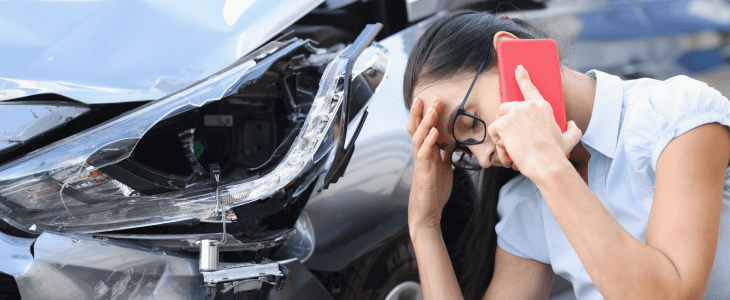In the chaotic aftermath of a car accident, emotions run high, and it can be challenging to think clearly. However, documenting the scene promptly can be crucial for protecting your rights and building a strong personal injury claim. As seasoned personal injury attorneys in New York, we understand the importance of gathering pertinent information immediately after a car accident. Here, we will outline the key elements you should document to ensure a solid foundation for your case.
Immediate Steps After a Car Accident:
Before documenting anything after a car accident, prioritize safety. Check yourself, passengers, and others involved for injuries. If there are serious injuries, call 911 for immediate medical assistance. Documenting the scene comes after ensuring everyone’s well-being.
Here are some steps you should take to properly document after a car accident:
- Exchange Information: Exchange essential information with the other parties involved. Obtain names, addresses, phone numbers, and insurance information. If there are witnesses, collect their contact details as well. This information will be vital when filing an insurance claim or pursuing legal action.
- Photograph the Scene: Capture the accident scene from various angles. Include photographs of the vehicles involved, their positions, and any visible damages. Document road conditions, traffic signals, and relevant signage. These images serve as valuable evidence in establishing the circumstances of the accident.
- Capture License Plates: Photograph the license plates of all vehicles involved in the accident. This helps identifying and locating the parties later if needed. It is a simple yet effective way to ensure accurate information for your records.
- Note Environmental Conditions: Document weather conditions, lighting, and any environmental factors that may have contributed to the accident. In New York, where weather conditions can vary, this information can be crucial in establishing liability.
- Document Injuries: If you sustain visible injuries, document them with photographs. Additionally, seek prompt medical attention even if injuries appear minor. Medical records serve as crucial evidence linking your injuries to the accident.
- Record Statements: While still at the scene, if possible, obtain statements from witnesses. Ask them to describe what they say, and record their account. Witness statements can play a significant role in corroborating your version of events.
- Obtain Police Report: Contact law enforcement to report the accident and obtain a copy of the police report. This official document includes details about the accident, statements from involved parties, and any traffic violations. The police report is a key piece of evidence in insurance claims and legal proceedings.
- Seek Medical Attention: Even if injuries seem minor, seek medical attention promptly. Document all medical visits, treatments, and prescriptions related to the accident. This comprehensive medical documentation strengthens your personal injury claim by establishing the extent of your injuries and the associated expenses.
- Contact Your Insurance Company: Inform your insurance company about the accident as soon as possible. Provide them with accurate and detailed information. Promptly reporting the incident is crucial for a smooth claims process.
Personal Injury Attorneys
The moments following a car accident are critical, and documenting the scene thoroughly is essential for your well-being and any potential legal action. By following these steps and collecting crucial information, you can protect yourself and build a strong personal injury claim. For trusted personal injury legal assistance you can count on, reach out to the dedicated team at CDH Law. Contact us today.



